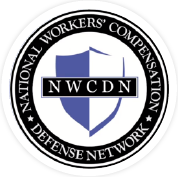Oregon Legislative Proposals – SB 668 Prohibits OR-OSHA fine related to alleged COVID-19 violation if no outbreak of COVID-19.
Senate Bill 668 was recently introduced by Senators Knopp, Anderson and Girod during the 82nd Oregon Legislative Assembly. The bill proposes to create a new statute within ORS Chapter 654, which governs Oregon OSHA. The proposed statute will prohibit OR-OSHA from imposing a civil penalty or fine if an alleged OR-OSHA violation, related to COVID-19, does not result in an outbreak of COVID-19. The Director would also be required to rescind penalties/fines already imposed against employers for such OSHA violations where the alleged violations did not result in an outbreak.
In the event bill 668 is enacted, there would be consequences for both existing citations and future enforcement. In regard to citations that have already been issued, the Department would be required to review each alleged COVID-related citation individually and determine whether or not the alleged violations resulted in an outbreak. Where an outbreak cannot be substantiated as a result of the alleged COVID-related violations, OR-OSHA would be required to refund any penalty already paid by the employer and rescind any penalties assessed on citations which are still pending.
In regard to future enforcement of COVID-related regulations, OR-OSHA may still issue citations for alleged violations, but unless an outbreak as a result of such alleged violations can be established, the violations would not be subject to assessed penalties. OR-OSHA would bear the burden of proving an outbreak occurred and that it is a direct result of the violation which would likely prove difficult in most circumstances.
If you are an Employer and have questions and need assistance, please contact the lawyers at Cummins, Goodman, Denley & Vickers at (503) 476-8200.
©2023 Cummins, Goodman, Denley & Vickers P.C. This material is provided for informational purposes only. It is not intended to constitute legal advice nor does it create a client-lawyer relationship between Cummins, Goodman et. al., and any recipient. Recipients should consult with counsel before taking any actions based on the information contained within this material.

